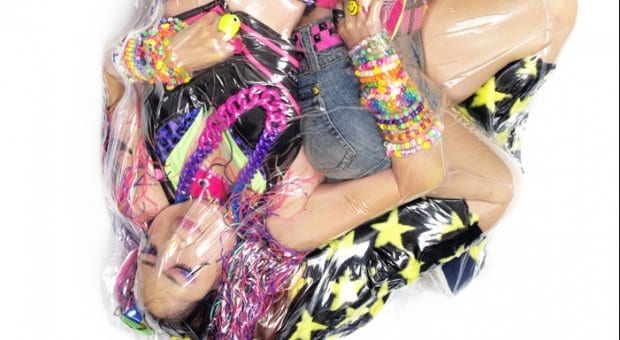In a 2010 article for The Guardian newspaper on body image, Eva Wiseman states that a regular internet user views an average of 5,000 digitally modified bodies a week.
Think about that for a second. That’s 5,000 bodies that don’t actually exist but have been artificially rendered with technologies like Photoshop. It should be no surprise, then, that our cultural standards for how we should look are quickly becoming wildly unrealistic.
“I’m one of those people who hates seeing themselves in the mirror or getting their picture taken,” says curator/artist Jason St-Laurent. “I realized for many years I was covering myself up completely in both my photographic work and my videos. I started to wonder if there was an underlying issue here that I should deal with. Do I hate my physical self to that extreme?”
Though human insecurity is nothing new, the last decade’s digital explosion corresponds with a dramatic spike in eating disorders and surgical alterations.
“I definitely think that insecurity is amplified in the digital realm,” St-Laurent says. “We’re essentially trying to measure up to the impossible. It’s a phenomenon that’s affecting people throughout their lives, in sometimes devastating ways.”
His response to these questions comes in the form of SAW Gallery’s current exhibition Transformer. Subtitled The Body Remixed, the collection of videos, paintings, sculptures and photographs takes aim at the question of how we perceive ourselves by showing the body in various states of transformation.
Tokyo-based photographer Hal’s images of couples encased in shrink-wrap render bodies so artificial they could easily be mistaken for blow-up dolls. Montreal artist Beth Frey looks at what happens to women who don’t fit the mould with a towering drawing of a doll going out of control. And German artist Bjørn Melhus’s video installation imagines a cloned, all-male virtual universe in which everyone’s voice is appropriated from music videos.
The show had a long incubation period; St-Laurent first saw some of the included works nearly two decades ago.
“When I travel, much to the chagrin of my boyfriend, I go to all the galleries and museums possible so that I have a bank of works I can rely on when I curate exhibitions,” he says. “I wanted works with diverse aesthetic and conceptual approaches so they could stand on their own as well as in the group.”
Though the artists featured are especially diverse, St-Laurent sees a particular resonance in the exhibition for gay men.
“There are elements that may be more poignant for gay men, since we’re often early adopters of all things related to bodily modifications,” he says. “Today, many of us are concerned with our digital selves on dating sites and social media. It creates a new form of anxiety for gay men who are not only judged in the bars for their appearance, but also online, which is a harsher and more vicious environment for building one’s self-esteem.”
Transformer: The Body Remixed
Runs until Mon, Nov 3
SAW Gallery
67 Nicholas St, Ottawa


 Why you can trust Xtra
Why you can trust Xtra


